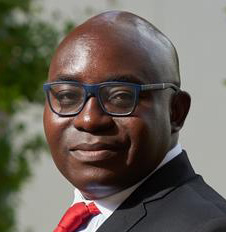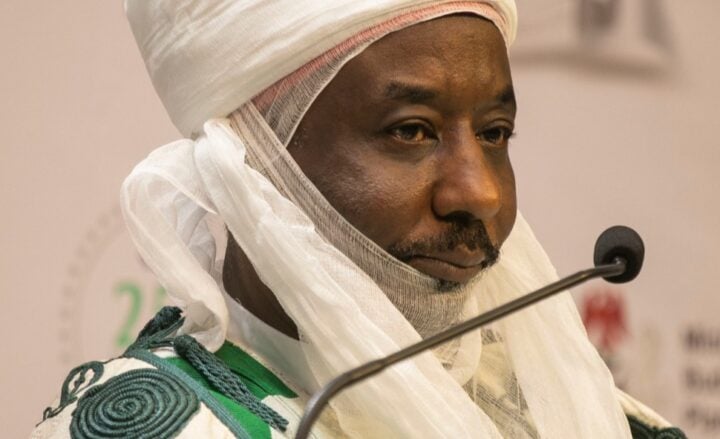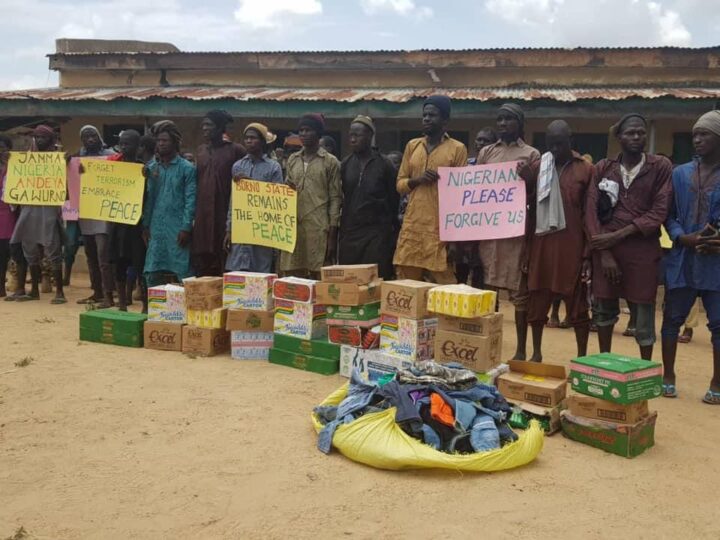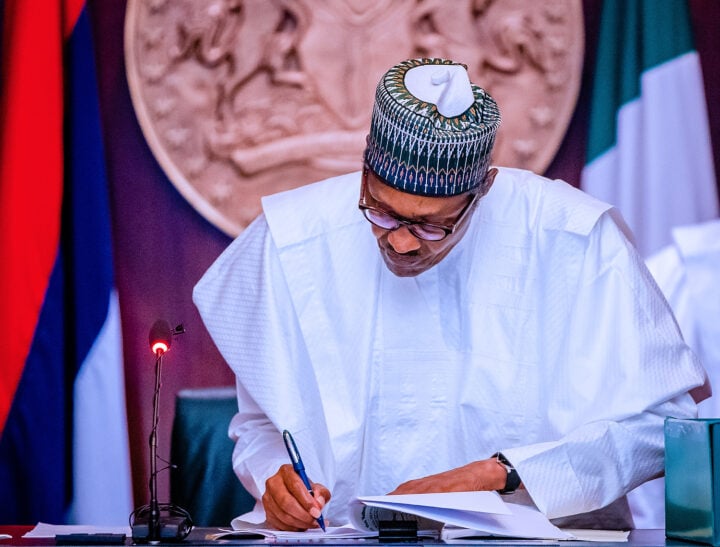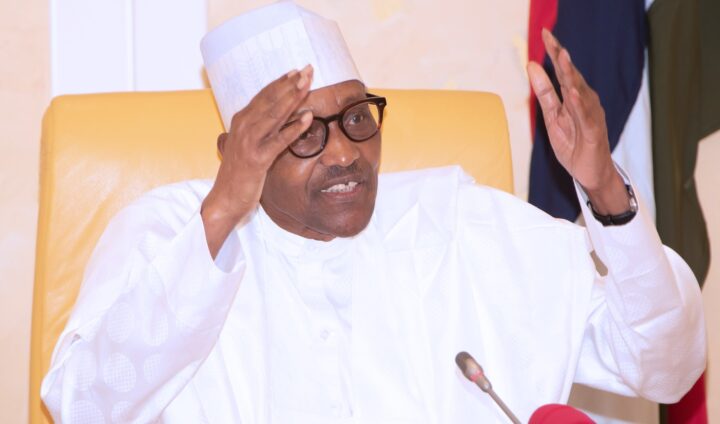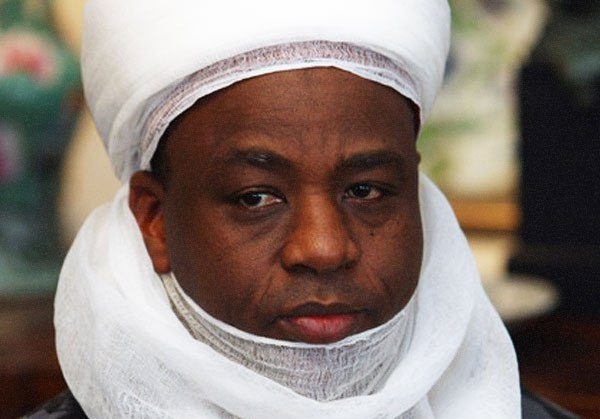What I will like to do is to attempt to take forward the critical role of public intellection through the author’s reflections in the book under review.
But first a short story. In July 2019, I visited His Highness at the Gidan Rumfa in Kano to seek his views on a research project on the politics of austerity measures. At the end of the interview, we got talking briefly about Nigeria as His Highness rearticulated some of the developmental plans he had for Kano while also mentioning some of the challenges he was facing. In response, I accused him of abandoning Nigeria for the Kano throne. He disagreed. He explained that apart from taking up the mantle of his heritage, there were important and urgent developmental challenges that needed to be addressed in Kano, in particular, and the north of Nigeria, in general, for which his position as the Sarkin Kano was critical. But I insisted that the more important and urgent developmental challenges in Nigeria, for which his likes were needed, would not allow him, in the long run, to accomplish most of the goals he set for himself as the Emir of Kano.
The national body-politic was afflicted with multiple sclerosis, trying to save one of the limbs was therefore inadequate. What Nigeria needed were treatments that could ensure a speedy recovery from the attacks to the national brain and the central nervous system of the body-politic in order to modify the course of the disease and manage the symptoms. The problem in Kano and the north were manifestations of the fundamental problems of the Nigeria state. Thus, what needed saving first was not Kano; it was Nigeria. The appalling leadership in the state was only a reflection of the headship of the Nigerian state.
The book that is being presented today in an affirmation that, despite his position on Kano’s urgent salvation, the author has always recognised that Nigeria not only needed to be saved – but that, correspondingly, as poet and humanist, Odia Ofeimun, insists – Nigeria was eminently saveable. Though there is no question that time is running out on Nigeria, especially so in a moment of our national history when utter cluelessness mixed with mindless indifference has been turned into a matter of regime pride and even governmental swagger, there are still many who hold out some hope for Nigeria. For the Good of the Nation: Essays and Perspectives, which includes essays, conference papers, and three interviews, published over the last two decades is not only a kind of manifesto by the author about Nigeria’s problems and possibilities, it is also a testament to the author’s prodigy as well as a demonstration of his eclectic, even if polemical, take on the most critical issues of our time. More significant is the fact that the book is a testimony to the author’s faith in Nigeria’s possibilities and our collective future as a people. Whether he is reflecting on the debates on the restructuring of the federation, redistributive justice and ‘radical democratic imagination,’ interrogating Muslim political thought in the modern world, the intellectual sources of Islamist identities, or engaging with Foucauldian philosophy in probing Muslim history and the discursive trends in Islamic law in the context of Nigeria’s ethno-regional and ethno-religious tensions, including the struggle among Nigeria’s ruling and ruining class, the author’s specific liberal spirit and commitment to Nigeria is strongly reflected in this book. For instance, this spirit and commitment lead the author to embrace the liberating and liberationist ethos of Thomas Paine and Betrand Russell, even while rejecting their atheism.
Advertisement
As my late friend, Pius Adesanmi, so able captures it in his Foreword to this book, the author demonstrates the core obligations of public intellection, not just in speaking truth to power, but also in stubbornly confronting, headlong, some of the complex or difficult issues of the Nigerian union, including those regarding the precept, nature and future of the union, the character of ethno-regional relations as well as elite politics, religion and the politics of piety, and also the uncomfortable question of gender equality in northern Nigeria. This stubborn devotion to confronting uncomfortable questions leads the author, in Adesanmi’s words, to “a humanising synthesis of disparate political traditions” (p. xxxi) as “a praxis of intervention which seeks to create a middle ground of mutual sympathies and comprehension in a national oasis of acrimony and misunderstanding” (ibid). Thus, it is important in this review to foreground the author’s critical commitment to public intellection about the most important questions of the age. Against this backdrop, the author’s critical examination of these issues – including his intellectual orientation, his praxis, his ethno-regional location, his royal pedigree and privilege – also constitutes a veritable ground for further contention. However, while the author’s background and location define him, these essays show that they do not exhaust the author’s intellectual, socio-economic as well as political orientations and convictions. A man of noble convictions does not have to be a nobleman. Therefore, that intellectual nobility is combined with the nobility of birth, in this case, is not natural. It is obvious from the essays that the author’s social convictions developed over a lengthy period of both fascination with philosophical reflections from different historical eras as well as open-mindedness towards the world. It is striking that the man who has since become the leader of the Tijaniyya movement is also, in this book, the non-sectarian advocate for religious tolerance.
There are a range of issues, ideas, and praxis for the reader to engage with in this almost 500 page thought-provoking – and in some cases, provocative – book. I can only mention a few as I do not have the time and the space to deal with the sheer complexity of the issues here. However, I will point to two of these issues as illustrations of the author’s deep reflections, fine intellection, as well as profound, even if contentious, declamations about the Nigerian condition.
The first is about the political conditions of Nigeria. I place this under the episteme of national survival – that is, in Foucauldian terms, “the implicit [and explicit] ‘rules of formation’ which governs what constitutes legitimate forms of knowledge” about the essential character of the Nigerian state in this age. This includes ethno-regional and ethno-religious relations and tensions, the structure of the federation, and the nature and process of recruitment for national leadership. The author who dismisses the Afenifere and Ohaneze, and following Balarabe Musa, accuses “the Yoruba bourgeoisie” of representing “the greatest problem to nation-building” (p. 23) in the first year of Obasanjo’s presidency, is the same who affirms that Chief Obafemi Awolowo and Dr. Nnamdi Azikiwe were, unlike Sir Ahmadu Bello, right in pursuing a strong centre within a federal structure, while concluding that “The Northern bourgeoisie and the Yoruba bourgeoisie have conspired to keep the Igbo out of the scheme of things” (p. 24). While he rejects the attempts to make all Northern Muslims to take responsibility for what he describes as “the un-Islamic actions of past” northern leaders (p. 37), and rejects “a crude and cruel caricature of the Northern Muslim,” the author concedes that “it is a caricature that finds credibility in the abundance of evidence” (p. 227) even while adding in another essay that “if there is anything [about] which the political leadership of the North stands guilty as charged, it would be its contemptible and cowardly silence, its tolerance of evil and its open fraternisation with despots. As an example, the silence of Emirs and many notable political and religious leaders in the face of the injustice to which Chief M.K.O. Abiola was subjected is inexplicable” (pp. 37-38). It is no wonder he didn’t keep silent when he also became an emir. (Although, the reigning emirs might respond that “no wonder he is no longer an emir!”) Also, the author agrees “with most of what northern Christians have to say about northern Muslim elite” (p. 55) even while insisting that the “northern Muslim poor,” perhaps more so than northern Christians, “have been visited with adversity by the northern elite.”
Advertisement
One of the most significant goals of this volume, it seems to me, is how to ensure national survival. While the reader may not agree with the author about his diagnosis or prognosis, I suspect that most people across the political and ideological spectrum who are committed to national survival– including both the proponents and opponents of restructuring or national conference – will agree with the part of the book which speaks powerfully to the spirit of the theme of this book: For the Good of the Nation. I will quote the author: “… there is a second, perhaps more fundamental reason, for discussing the structure of the federation. It is the reality that the elite merely exploit or manipulate the secondary contradictions in our polity. They neither created nor concocted them…. The historical process which brought together these heterogeneous groups was never destined to achieve a magical and immediate erosion of their histories and a total submersion of their identities into a common national milieu…. [Thus] the task of nation-building does not lie in ignoring these differences, as the military have tried to do. Unity is not necessarily synonymous with uniformity. But it also does not lie in a defeatist attitude of despair or a return to a nihilist era of ethnic agendas and tribal warfare…. The tragedy of Nigeria does not lie in its diversity, nor in its population, nor in its resources. Our tragedy lies in the lack of a truly nationalist and visionary leadership, an elite that harnesses the diverse streams that flow into the melting pot called Nigeria” (p. 5).
Against this background, I strongly recommend that you read the author’s take on federalism and state creation as well as his take on the experiences of the northern minorities and the Igbo in the post-Civil War era.
The second is about the explication, explanation and/or reconsideration of Islam, the role of Islam in Nigeria’s history as well as the philosophical reflections on Islam and modernity and the implications of theocratic praxis for the future of Nigeria. In his role as an explainer and defender of Islam and Islamic theology – and even Islamic jurisprudence – in order to achieve rationality within and outside the Islamic world towards achieving inter-cultural understanding and inter-faith dialogue, the author, as the book shows, has been assailed by doctrinaire Islamists as well as non-Muslims. But as a polymath who is also a theologian, one who is as confident about his knowledge in Islamic jurisprudence as well as the arcane philosophy of ancient Greece, the author competently takes on both the adherents and outsiders or traducers of Islam on different issues, including the Sharia’h, gender relations within Islam and in the larger contemporary society. One of the key issues that the author attempts to settle in this book is the conflation of culture/tradition with Islam. He engages in an intricate analysis of tradition and culture in ancient Arabia and tradition and culture in Northern Nigeria in order to separate out both from Islamic religion. This is in response to the religious precepts mobilized ignorantly, in his view, by the clerics – for instance, in the treatment of women.
For all his intellectual exertions in explicating the conditions of egalitarian national life, particularly his virulent critique of the conditions of poverty in the north and the misinterpretations of Islamic doctrines, the author has been a target of critics. As he writes in the book, “My interventions have been received with not a little discomfort, but truthful discourse is no respecter of sensibilities” (p. 226). Some, as he acknowledges, have even described him as “an arrogant secularist who claims to destabilize the noble edifice of Northern Muslim society, a pretender to being a reformer in the league of Dan Fodio, an agent of the West and dealer in usury, a Marxist who places reason above revelation” (p. 330). In a sense, the author wears this criticism as a badge of honour. Why? Because it reveals the kind of misunderstanding and denunciation that serious public intellection exposes one to. I will add that it is significant that the author has been accused of all these. Despite the irony of accusing the caliph of the Tijaniyya Movement of being a secularist, I think that what these collection of essays show is the complex nature of the thought and praxis of the author.
Advertisement
An able and nimble mind and one of the most cerebral and controversial Nigerians of his age, the author, as this book again demonstrates, remains a compelling puzzle – even in a sense, an oxymoron: a Nobleman Rebel, or Rebel Nobleman. He is as fierce and committed a defender of the tradition and privilege of royalty as he is a fiery and unhampered instigator of dissent and discontent among the underprivileged; he is as comfortable in a pinstripe suit with bow tie or a Chairman Mao suit as he is in the long flowing gown and regal costume of Kano royalty – complete with a veil over his face; he is as suave in the company of global and local aristocrats, billionaires and leaders as he is as unpretentious among the “commoners” and poor pupils learning the tarteel. This compelling puzzle is partly why he attracts the kind of criticism referenced above and also partly why this book recommends itself for close attention. But the cardinal reason why this book is important is not merely because of the tension between nobility and rebellion that the author represents; in my view, it is because of the cardinal concern of the reflections on the future of Nigeria. And what a fitting moment to reflect again on the future of what many – from one extreme of Boko Haram would-be theocrats to the other extreme of ethno-regional secessionists – regard as Lugard’s bastard child.
One key question that the author does not address in this book, which I will suggest he needs to take up in the volume that will follow the book he is now completing at Oxford on his Central Bank years, is on the practical steps necessary in producing the kind of leadership that he preaches for in this book. If indeed the fundamental problem of Nigeria, as he argues, is leadership, what is to be done, particularly about ensuring that people of goodwill who have the needed capacity are able to be at the helm of affairs in Nigeria? What is to be done to ensure that the electorate themselves stop recruiting one incompetent man after another?
Let me conclude on what we might call a “hopeful” note. The author was conscious of the implications of some of his dark prognosis about the Nigerian condition. Therefore, in the first essay, “Issues in Restructuring Corporate Nigeria,” he writes, “But the audience may ask, is there any hope for this country? My answer is yes.” One of the reasons for his position was because of his generation of “young, educated Nigerians… ready to take up the gauntlet, and ignite the hopes, for a renewed Nigeria.” When he wrote this, he was 38. The author is no longer that “young.” At 60, does he retain this hope? If he does, the hope is not shared by many contemporary young people from those lining behind Nnamdi Kanu and those behind Sunday Adeyemi (Sunday Igboho) to the Boko Haram aspiring theocrats. What is to be done about those who have given up on Nigeria – including the millions who may not be organising for another country but are truly sick of the existing one? What is the role of public intellection in responding to this moment that appears like the eve of the tragic denouement in Nigeria’s history? This is where the author’s harsh judgement on the Nigerian elite is relevant. Many believe that if Nigeria collapses, the masses will suffer most. That is true. But it is also true that members of the parasitic Nigerian elite cannot survive in any space on planet earth other than Nigeria. It is therefore in their paramount interest to ensure “the good of the nation.” Hence, in this moment in our national history when the future of Nigeria appears hazy, this collection of essays and perspectives leads us back to that important but underappreciated epic song by Sonny Okosuns, “Which Way Nigeria?”
That song speaks directly to the theme of this book. I believe that beyond the polemics of the essays in the book, beyond the matters we agree or disagree on, beyond the author’s pedigree, his philosophical engagements with politics, religion and society, and his intellectual fascination with contrarian praxis, beyond all these, is the faith, as the book affirms, that binds us together in this potentially great but much-abused polity. Against this backdrop, I leave you with the core message of this book which is captured in Sonny Okosuns’ charge: “Let’s save Nigeria, so Nigeria won’t die!”
I thank you for your attention.
Advertisement
Adebanwi, until recently, was the Rhodes Professor of Race Relations, University of Oxford, United Kingdom, is the Presidential Penn Compact Professor of Africana Studies, University of Pennsylvania, United States.
Advertisement
Views expressed by contributors are strictly personal and not of TheCable.
Add a comment
